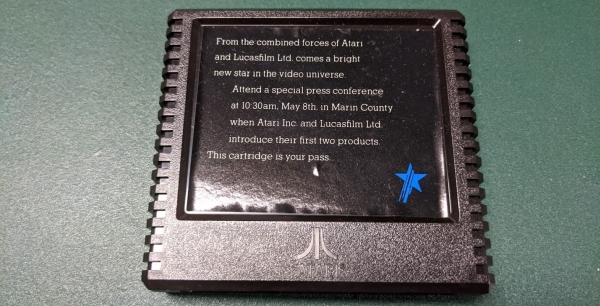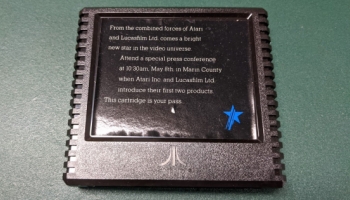
LucasArts and Factor 5 were joined at the hip in the late 1990s and early 2000s. But what sorts of games did LucasArts create before their collaboration? And what happened to Factor 5 after the Rogue Squadron series faltered? Oh, and where does the long-forgotten Independence Day Online fit in with both companies?
Find out in this edition of Bite-Sized Game History…
![]() You can find a lot of dedicated video game historians on Twitter, and in 280 characters or less, they always manage to unearth some amazing artifacts. Bite-Sized Game History aims to collect some of the best stuff I find on the social media platform.
You can find a lot of dedicated video game historians on Twitter, and in 280 characters or less, they always manage to unearth some amazing artifacts. Bite-Sized Game History aims to collect some of the best stuff I find on the social media platform.
It took Roland Emmerich and Dean Devlin 20 years to produce a sequel to one of the biggest blockbusters ever made, but when Independence Day: Resurgence finally came out in 2016, it did so without Will Smith. Fans were understandably disappointed by that development, but did you know that Resurgence was actually Fox’s second attempt at a sequel?
Independence Day Online, an online space shooter, was quietly released by Mythic Entertainment in 2000, and it served as a direct sequel to Independence Day. Players could join up with the Earthlings or the aliens, and pilot futuristic fighter jets in 20-player space battles near the moon, Mars, and Earth.
Sadly, Independence Day Online flopped hard, and there’s almost no record of it on today’s Internet. But historian Chris Chapman did some digging (on July 4th, naturally) and discovered a gameplay trailer for the online shooter in an unlikely place…
Thinking about the lost game Independence Day Online, designed by Mark Jacobs at Mythic (later the lead designer of Dark Age of Camelot and Warhammer Online).
Released in 2000 and set after the movie, up to 20 players (some sources say 30) could engage in online dogfights. pic.twitter.com/gGseorwbgK
— Chris Chapman (@retrohistories) July 4, 2021
Back in 2000, Independence Day Online would have been competing against LucasArts and Factor 5’s acclaimed Star Wars: Rogue Squadron for a share of the space shooter market, so it’s not too surprising that the latter won out. But while LucasArts embraced their destiny as interactive stewards of the Star Wars franchise in the late 1990s and early 2000s, it wasn’t always that way.
Due to existing licensing deals, the developers at Lucasfilm Games (as it was initially known) wouldn’t get the chance to play in the Star Wars sandbox until 1991, nearly a decade after its founding. During those early days, the team instead focused on creating “experimental, innovative, and technologically advanced video games” like Ballblazer (a futuristic sports game) and Rescue on Fractalus (a space shooter not connected to any existing film franchise where players rescue astronauts from a hostile alien planet).
But before all that, George Lucas, and his partners at Atari, held a press conference to introduce Lucasfilm Games to the public. This replica cartridge, which is now held by the Video Game History Foundation, served as the ticket to that event…
In many ways, this object – a cartridge shell with no PCB inside – represents the birth of LucasArts. This was a press invitation to the unveiling of Ballblazer and Rescue on Fractalus, the first two titles by Lucasfilm Games. pic.twitter.com/345xEayZ7Y
— Video Game History Foundation (@GameHistoryOrg) July 16, 2021
Factor 5 struggled after the release of Star Wars: Rogue Squadron III – Rebel Strike in 2003. After partnering with Sony to release the critically-derided Lair in 2007, the team regrouped and began working with Brash Entertainment on a completely different kind of Superman game (codenamed Blue Steel) in 2008.
In this thread, former Factor 5 developer Salvatrix shared character art, gameplay concepts, level designs, and prototype footage of Blue Steel‘s aerial brawling, superpowered boss battles, and destructible environments, as well as its view of a fully-open Metropolis…
In 2007/2008, I was lead designer on a Superman game that was never released – because the economy crashed hard. It killed our publisher, our studio (Factor 5), and the game.
I have multiple unreleased games through my career, but THIS is the only one I mourn to this day…
— Salvatrix (@DevSalvatrix) July 13, 2021
Thanks to Chris Chapman, the Video Game History Foundation, and Salvatrix for creating the tweets used in this edition of Bite-Sized Game History. And be sure to follow me on Twitter for more out-of-this-world bits of game trivia.

